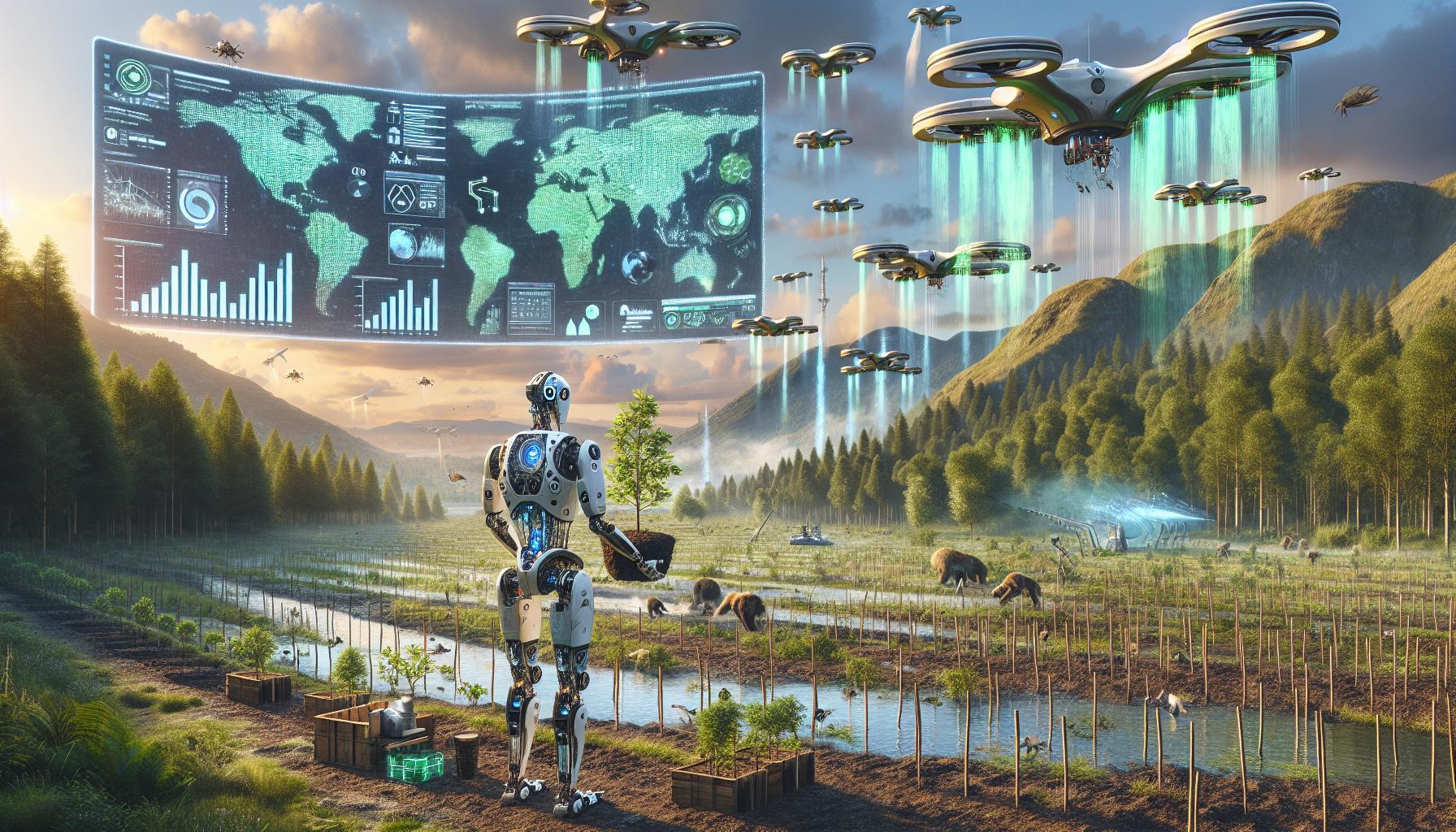As the world grapples with escalating environmental challenges, artificial intelligence (AI) emerges as a beacon of hope, offering innovative solutions that could potentially reshape our approach to conservation and sustainability. ABC News recently highlighted the pivotal role AI technologies play in addressing critical environmental issues, from predicting climate change impacts to optimizing energy consumption. This article delves into the various ways AI is being leveraged to foster a more sustainable future.
AI-driven models stand at the forefront of this technological revolution, boasting the ability to forecast weather patterns with unprecedented accuracy. This capability is instrumental in enhancing disaster preparedness and response efforts, potentially saving lives and mitigating property damage. The predictive power of AI extends beyond meteorological applications, offering insights into climate change trends and their potential impacts on our planet.
AI in Wildlife Monitoring and Ecosystem Conservation
The application of AI technologies extends to the monitoring of wildlife and ecosystems, providing valuable data that informs conservation strategies. Through the use of advanced sensors and machine learning algorithms, AI systems can track animal movements, monitor population dynamics, and even detect poaching activities in real-time. This data is crucial for the development of targeted conservation efforts, ensuring the protection of endangered species and the preservation of biodiversity.
Moreover, AI facilitates the analysis of vast amounts of environmental data, enabling researchers to identify patterns and trends that would be impossible to discern manually. This analytical capability is vital for understanding the complex interactions within ecosystems and can lead to the discovery of new conservation methods. By harnessing the power of AI, we can develop more effective strategies to combat habitat destruction, pollution, and other threats to our natural world.
Optimizing Energy Consumption with AI
One of the most pressing environmental issues facing our planet is the unsustainable consumption of energy resources. AI technologies offer a promising solution to this challenge by optimizing energy usage in various sectors. Smart grids, powered by AI algorithms, can efficiently distribute electricity, reducing waste and lowering greenhouse gas emissions. Similarly, AI systems in buildings can manage heating, ventilation, and air conditioning systems more effectively, minimizing energy consumption without compromising comfort.
In the industrial sector, AI can streamline production processes to enhance efficiency and reduce energy requirements. By analyzing operational data, AI algorithms can identify inefficiencies and suggest improvements, leading to significant energy savings. This not only benefits the environment by reducing carbon footprints but also offers economic advantages to businesses through lowered operational costs.
AI’s Impact on Sustainable Practices
The integration of AI technologies into environmental conservation efforts marks a significant step towards sustainable practices. By providing accurate predictions and actionable insights, AI empowers policymakers, businesses, and individuals to make informed decisions that favor environmental sustainability. Whether it’s through the adoption of renewable energy sources, the implementation of conservation measures, or the optimization of resource use, AI is a powerful tool in our quest for a sustainable future.
Furthermore, AI’s ability to process and analyze large datasets can uncover new opportunities for sustainable development. From identifying potential sites for renewable energy projects to optimizing supply chains for minimal environmental impact, AI is reshaping how we approach sustainability. By leveraging AI, we can accelerate the transition to a more sustainable and environmentally friendly world.
The Future of AI in Environmental Conservation
The potential of AI technologies to address environmental challenges is immense. As we continue to explore and expand the applications of AI, it is crucial to ensure that these technologies are developed and used responsibly. With the right policies and ethical considerations in place, AI can significantly contribute to our efforts to protect the planet and ensure a sustainable future for generations to come.
In conclusion, AI technologies are playing a crucial role in addressing some of the most pressing environmental issues of our time. From predicting climate change impacts to optimizing energy consumption, AI offers innovative solutions that pave the way for more sustainable practices. By embracing AI, we can protect our planet and foster a sustainable future for all.
